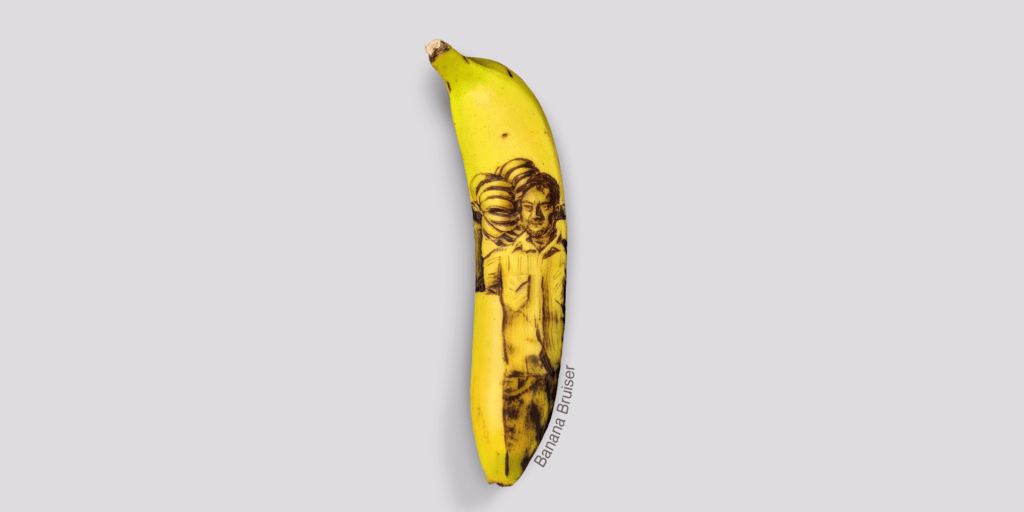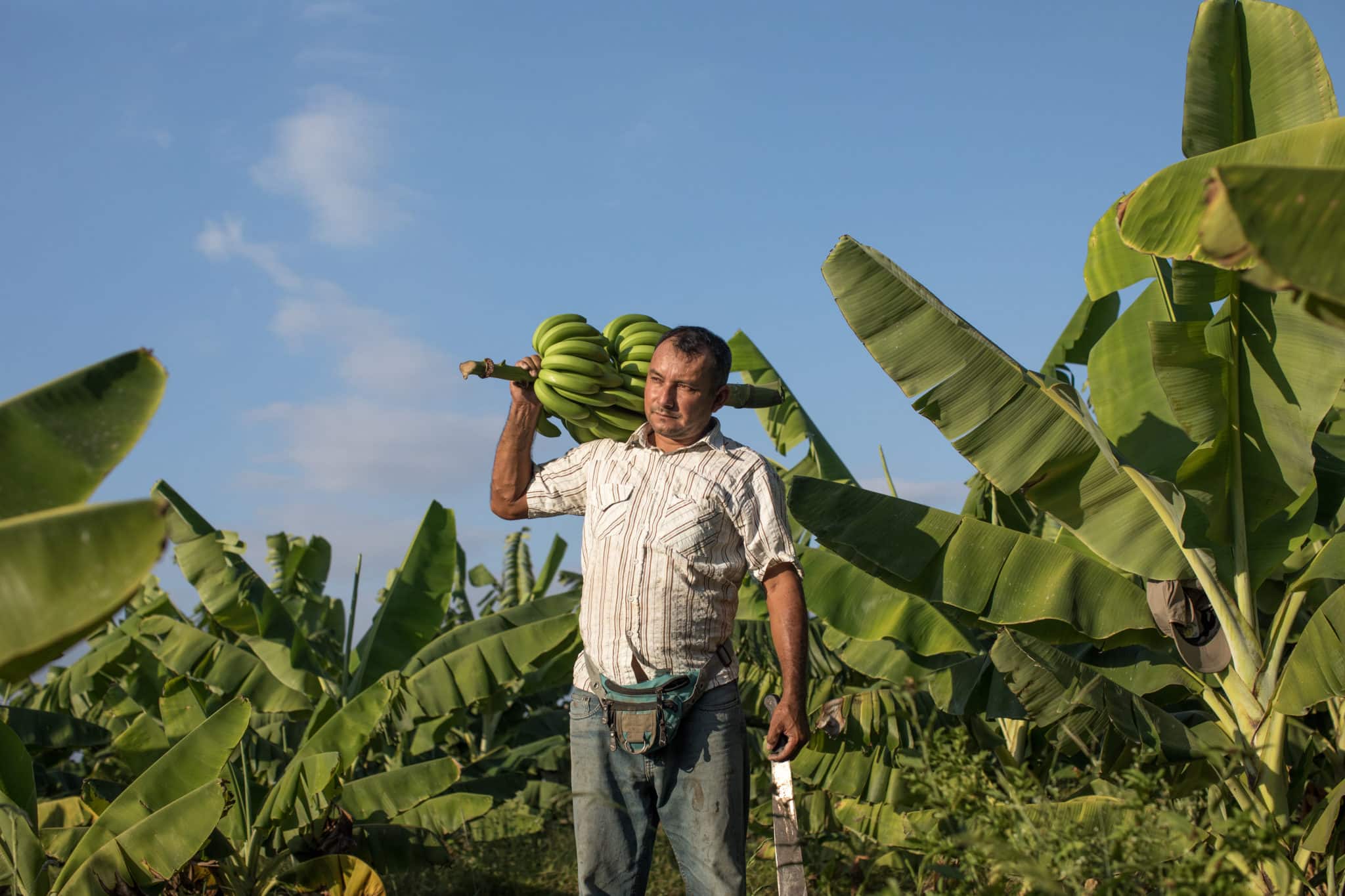An art campaign is raising awareness to highlight the triple challenge bananas farmers face as rising costs, low prices and climate change threaten their livelihoods.
The artist Anna Chojnicka, also known as Banana Bruiser, has etched the figure of organic Fairtrade banana producer Juan Roberto from Peru, onto a real banana to call to attention the struggles they face daily.
“The bruised Fairtrade banana carefully created by Anna Chojnicka is a vivid tribute to the hard work and sacrifices made by farmers and workers overseas, who are vital to ensuring we can enjoy this much-loved fruit here in the UK,” said Anna Pierides, senior supply chain and programme manager for bananas at the Fairtrade Foundation.

“The banana sector is an industry where production costs continue to rise, while market prices remain painfully low, placing a heavy burden on smallholder farmers and workers.
“The prospects can be dire – particularly as the climate crisis and cost-of-living crises continue to bite,” she added.
Roberto, a ‘bananero’ (as banana producers are known as in Latin America) who farms in the north west of Peru in Puira, said in a Fairtrade documentary: “We have many expenses; fertiliser has risen by 50 per cent, fuel has increased too. But the price of bananas is going down.”
“Sometimes what we earn is not enough to cover our main needs; food, the education of our children and health,” said Roberto.
“Bananas like many crops are subject to market forces,” said Willy Paredes, a Peru-based producer representative from Fairtrade’s network of small producers and workers in Latin America and the Caribbean (CLAC).
“When banana production is very high, prices are usually very low. It doesn’t allow them to make the necessary investments.”
However, fairer trade initiatives can provide banana farmers with better prices to produce more sustainably, maintain farmer livelihoods, improve worker conditions and infrastructure.
Fair prices can allow ‘bananeros’ to invest in equipment and advice to better adapt to climate changes, which is already affecting the size of bananas. This reduces how many they can export according to the supermarket requirements, causing food waste.
“In Puira we have had seasons with higher heat than usual and cold seasons that do not normally happen,” said Roberto.
“The market requires eight-to-nine-inch bananas, but because of the rain, short fruit is coming out,” added Roberto. “That causes a lot of discarded fruit and generates losses to us.”
“All this is caused by processes that occur due to the effect of climate change,” said banana cooperative manager in Puria, (APBOSMAM) Miguel Angel Borrero Castillo.















0 Comments